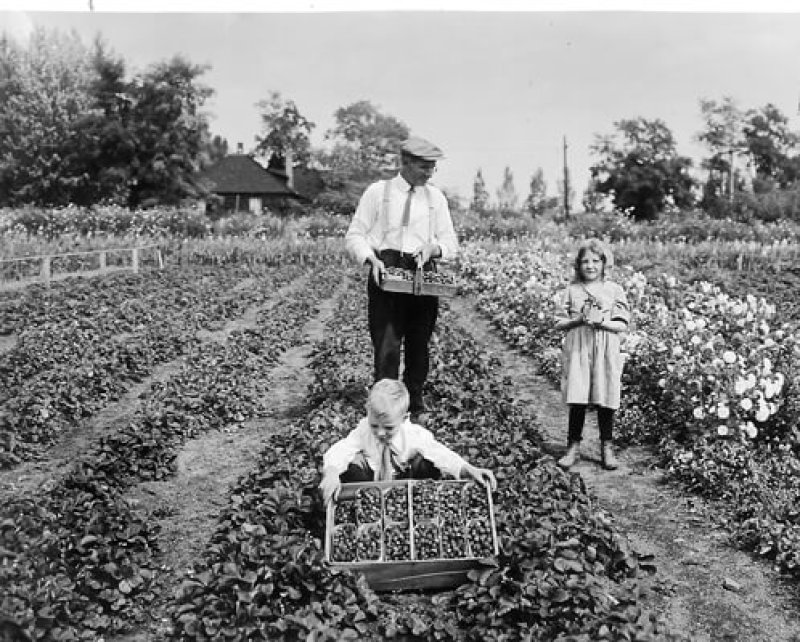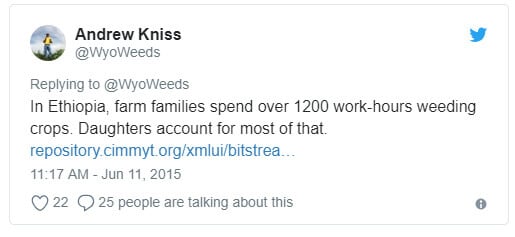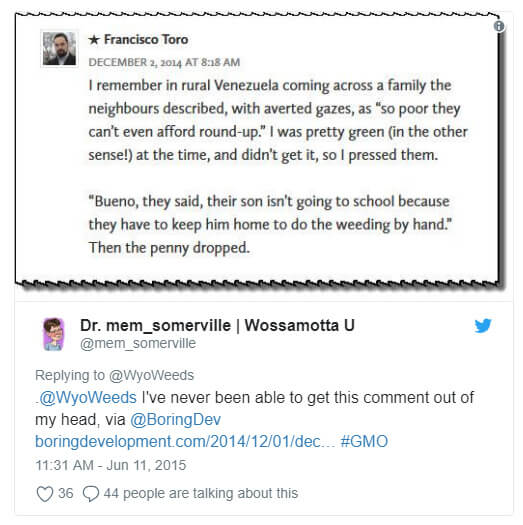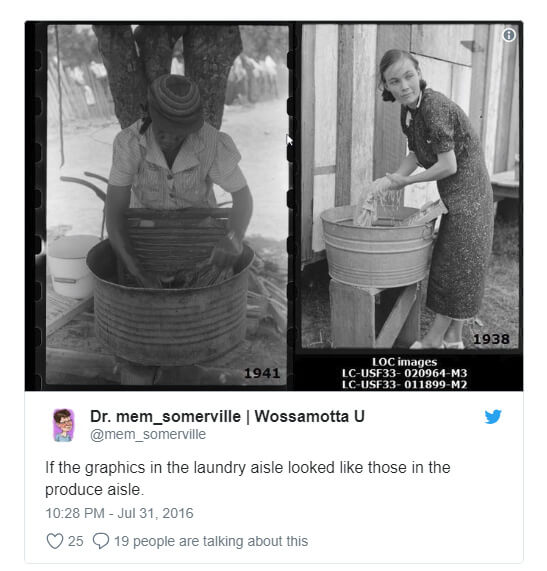Although my primary educational training is in biological science, I’ve always loved history. To help put myself through college, I worked as a National Park Ranger in the city where I grew up, Lowell Massachusetts. Lowell is a historical park that provides a look at a remarkable transition in American history: industrialization. Based on the area’s convenient and renewable water power which could be harnessed to run looms and thread spinners, a bunch of wealthy white guys used industrial espionage to steal plans from British cotton mills. They set up factories in Lowell that changed many environmental, social, and economic features of the previously sleepy farmland.
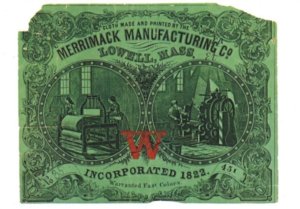
One of the initial directions that the new industrialists wanted go: they wanted to hire women from the surrounding New England farms. They recognized an untapped resource — lonely young women who might work on the new high-tech weaving for a few years, then return back to the farms to raise families. They’d have boarding houses with a sort of dorm mother who would watch over their behavior and deportment — and their morals. It was an unprecedented opportunity for the women to earn an income and live away from a father or husband’s sphere. These women were able to gain an education that was otherwise unavailable to them at the time. Lecturers from Harvard, and numerous other famous and international speakers, came to Lowell during the Mill Girl period. The women contributed to a magazine, The Lowell Offering. One of them, Harriet Farley, was from a poor family in New Hampshire. She had few paths available to her, but came to work in the mills. There, despite very long workdays and workweeks, she found “emancipation”, the chance to “read, think and write” that was not available to her before. She was not the only one who seized this path for income and outlets that were not available back on the remote farms.
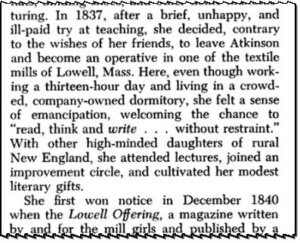
I think of these women frequently and acutely when I hear people who claim to long for simpler times, before the machines and corporations ruined everything. I used to imagine what my life would have been like had I been born in the same spot in 200 years prior to my Park Ranger gig. Farm chores were difficult, dangerous, and constant, and domestic tasks were also endless. Childbirth was a risky endeavor — with little choice about whether you would opt to have children. For many, farming provided only a meager living. I would have gone to the mills too.
Although the initial utopian Lowell factory system idea decayed, the mills continued to provide jobs for many years. Some of my family arrived because of potato blight. They fled famine in Ireland, and found work in the mills. Life for immigrants is challenging in many ways, but it was better than dying in a field of blackened spuds. Like a lot of immigrant families, eventually hard work, education and military service lifted us to a middle class life that provided paths to jobs in teaching, public service, and science, among others, that were not available to our land-working ancestors.
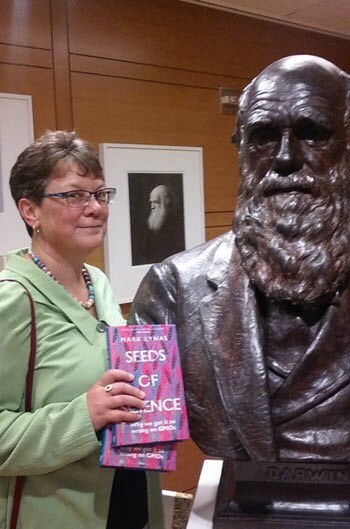
I was reminded of all the feels about my personal history as I was reading Mark Lynas’ new book, Seeds of Science: Why we got it so wrong on GMOs. I was provided a free copy of the book at a launch event in New York city. As I wrote in review elsewhere,
Mark Lynas has provided a worthwhile book from a number of perspectives. He describes his personal journey from farm- and science experiment-wrecking thug to someone who values the facts and evidence about plant science today. He looks at his own motivations and examines the reality of the tribal adherance that was keeping him from understanding the issues before.
He also provides an excellent overview of the history of opposition to the DNA modifications of plants and animals that are instructive to place us in the context we find ourselves today….
Having heard Mark describe how he reconstructed parts of the book to attempt to understand and convey the perspectives of opponents of genetic modification, I was eager to see what that looked like. I got to the chapter “What anti-GMO activists got right” and really wanted to figure out what that could be. Mark reconnects with influential activists from his prior life (George Monbiot, Paul Kingsnorth, Jim Thomas), and converses with them to grasp where they stand. Using iPhones and Skype and email, these wealthy white guys bemoan monocultures, corporations, patents, losing touch with nature, and the coldness of math over the abstractions of poetry. They worry about the centralized power dynamics that tech-laden farming or nuclear power plants demand (they claim). Jim Thomas of ETC deftly dodged the question of off-patent GMOs, but we are supposed to believe he’s a deep thinker on this issue — yet can’t figure out if those alter his conception and claims about them.
As with all the other merry-go-round excursions on this, all I saw was GMO-as-a-proxy-for-all-the-other-things-you-dislike. I saw nothing unique to genetic modification. George Monbiot even admitted, “it is absolutely true that there’s a scientific consensus on GMO safety”.
But, but, but… “Nothing human beings do is value-free” says George, about science. Sure. But those farm girls living in pre-tech “simpler times” were constrained by a whole lot of “values” too. Heavy duty “Christianity”, white, heterosexual, male-dominated economic control. Do you think economic power wasn’t concentrated before tech? Do you think that “values” discussions in the dominant religious framework wasn’t concentrated and hugely oppressive? WTF? What magic point back in time do you think we can go to from here? Industrialization and the new opportunities it provided increased women’s access to financial resources. It increased their access to educational enlightenment and new ideas. It gave them a voice they didn’t have before. It put us on a path to access strategies that let us control our fertility for the first time. Increasingly abundant food and medical care allowed us to reduce family sizes, if desired. It gives us access to information that we never would have had before. It gives us time to do other things. It actually gave us control over our lives and choices that we didn’t used to have. My grandmother — Mabel — wasn’t going to be allowed a vote until 1920. But she worked in the mills and had money to support her family, and earned respect as a skilled velvet cutter and later a trainer, with a feeling of purpose until she retired in the 1970s. (In her 70s. She enjoyed working, even though it wasn’t a walk in the woods.)
There are still plenty of places in the world that don’t have these options. Many of them are the small, non-corporate farming situations these guys seem to long for. Here’s one:
Daughters are weeding. Do you think that’s by choice? Maybe daughters who weed is what you value. But it’s not at the top of my values list for what kids should be doing.
I’ll admit it straight up: I value education, for everyone, more than I value weeding. I value nutrition, so kids are healthy and thrive. I value abundant and inexpensive food. I value reducing the amount of land used for farming, and reducing harmful chemicals while maintaining yields. I value access to key cultural foods, for those who choose cassava or matoke, for example. I value reproductive choice. I value not living under zealots’ values constraints. I value options to reduce disease — like eliminating malaria vectors, or access to GMO insulin, or GMO leukemia treatments. I value low-carbon energy sources because burning your simpler time wood is harmful, especially for women who have to cook with it. I value farmers having access to tools that reduce the burdens for them and their families, and improve their safety. And I value the choice to use technology.
To his credit, by the end of this chapter Mark is making many of these same kinds of arguments. He notes one of the same things I was thinking as I was reading — Hans Rosling’s washing machine talk is an excellent example of tech than changed things for women, in ways that your back-to-nature warm-fuzzies do not.
Yeah — have your nostalgia for pre-technology and pre-corporation, or some undefined unfuture. History was a shitty time for most people, especially women. Their “values” were that I was property and expendable. When I hear these tech critics talk about simpler times and losing touch with nature, I’m like: FFS, no thanks. Don’t pretend your back-to-nature-simpler-times-plan doesn’t force a path that not everyone wants or would thrive in. And nature wants to kill you too.
Poetry isn’t one of the things I value, I’ll admit that too. I’m much too literal. But you know what? GMOs are not precluding poetry. And stop pretending that they are. Nobody is stopping you from moving to the lonely woods and weaving your own clothes and growing your own food. Which you can cook over a wood stove. Or your wife can, while you write.
Go ahead — and if you get malaria or diabetes or cancer you are free to run to Paul Kingsnorth’s tents in the Dark Mountain woods for some tree bark treatments and some poetry. That’s fine. But you don’t get to make that choice for me. And who are you to make that call for Ethopian daughters? I’m going to stick with technology. And work for that choice for others.
Also, you should read Mark’s book. Via printing press or Kindle. Your call.
Mary Mangan, Ph.D., received her education in microbiology, immunology, plant cell biology, and mammalian cell, developmental, and molecular biology. She co-founded OpenHelix, a company providing training on open source software associated with the burgeoning genomics arena, over a decade ago. All comments here are her own, and do not represent OpenHelix. Follow her on Twitter @mem_somerville

